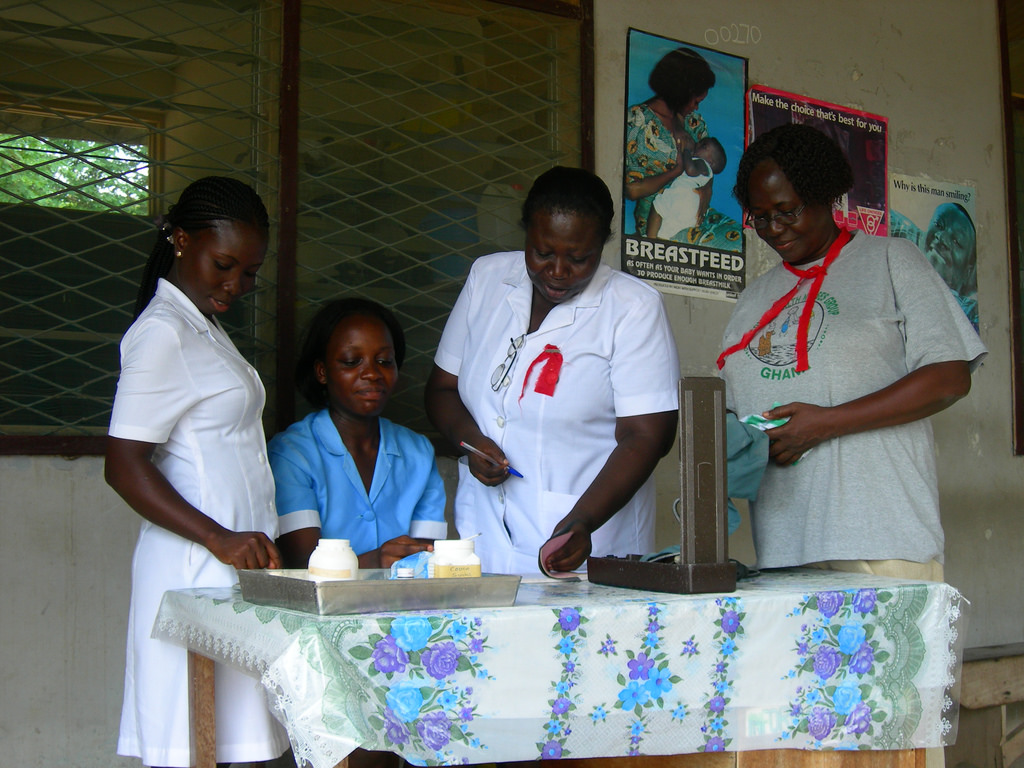Improving Mental Healthcare Access In Ghana: Tackling The Psychiatrist Shortage

Table of Contents
The Severity of the Psychiatrist Shortage in Ghana
The psychiatrist density in Ghana is alarmingly low, representing a major healthcare disparity. The ratio of psychiatrists to the population is significantly below international standards, leaving a vast majority of individuals with mental health needs without access to specialized care. This disparity is further exacerbated by geographical limitations; access to mental health professionals is significantly better in urban areas compared to rural communities.
- Statistics: While precise, up-to-date figures are challenging to obtain, estimates suggest a ratio of far fewer than one psychiatrist per 100,000 people, compared to the WHO recommended minimum. This stark reality means many individuals in need of psychiatric care are left without access.
- Regional Disparities: The lack of psychiatrists is not evenly distributed. Urban centers like Accra and Kumasi have a relatively higher concentration of mental health professionals, while rural areas often have little to no access to specialized mental health services. This creates a significant health equity problem.
- Comparison with Global Averages: Ghana's psychiatrist shortage pales in comparison to many other countries, both in Africa and globally. Developed nations often have a significantly higher ratio of psychiatrists to population, highlighting the scale of the challenge Ghana faces.
Consequences of Inadequate Mental Healthcare Access
The consequences of limited mental healthcare access in Ghana are profound and far-reaching. Untreated mental illness leads to increased suffering, impacting not only the individual but also their families and the wider community.
- Untreated Mental Illness: A substantial proportion of individuals with mental health conditions go untreated, leading to prolonged suffering, disability, and reduced quality of life. This includes conditions ranging from depression and anxiety to more severe illnesses like schizophrenia and bipolar disorder.
- Increased Suicide Rates: The lack of access to timely and appropriate care contributes to higher suicide rates, a tragic consequence of untreated mental illness. This highlights the urgent need for improved mental illness treatment options.
- Social Stigma: The social stigma associated with mental illness in Ghana further exacerbates the problem. Fear of discrimination prevents many individuals from seeking help, worsening their condition and perpetuating the cycle of untreated illness.
- Economic Impact: Untreated mental illness also places a substantial burden on the economy. Reduced productivity, increased healthcare costs, and lost potential all contribute to the economic impact of inadequate mental healthcare.
Underlying Causes of the Shortage
The psychiatrist shortage in Ghana is a complex problem with multiple contributing factors:
- Limited Training Programs: The number of psychiatric training programs within Ghanaian medical schools is insufficient to meet the growing demand for mental health professionals. This shortage of training opportunities limits the number of new psychiatrists entering the field.
- Inadequate Funding: Insufficient healthcare funding, specifically for mental health initiatives, hinders the development and expansion of training programs and limits the availability of resources for mental health services.
- Brain Drain: The emigration of trained professionals – brain drain – to wealthier countries seeking better opportunities and compensation further exacerbates the shortage. This represents a significant loss of expertise for Ghana.
- Rural Healthcare Infrastructure: The lack of investment in rural healthcare infrastructure, including facilities and support services, deters psychiatrists from working in these underserved areas.
Strategies to Improve Mental Healthcare Access
Addressing the psychiatrist shortage requires a multi-pronged approach that involves significant investment and collaboration:
- Expand Training Programs: Increase funding for psychiatric training programs and provide scholarships to attract and retain talented individuals in the field.
- Invest in Telehealth: Develop and implement telehealth programs to expand access to psychiatric care in remote areas. This can connect patients with specialists through video conferencing and other digital tools.
- Strengthen Community Mental Health: Invest in training community health workers in mental health first aid. This will enable early identification and intervention, reducing the burden on specialized psychiatrists.
- Implement Supportive Policies: Develop and implement comprehensive national mental health policies that prioritize mental well-being and ensure adequate funding for mental health services.
- Improve Rural Infrastructure: Increase investment in rural healthcare infrastructure to make it more attractive for psychiatrists to work in underserved areas, creating better working conditions and support systems.
Conclusion
The psychiatrist shortage in Ghana presents a critical challenge to the nation’s mental health. The consequences of inadequate mental healthcare access are far-reaching and devastating, impacting individuals, families, and the economy as a whole. To address this critical issue, a collaborative effort involving the government, healthcare professionals, NGOs, and international organizations is essential. We must increase funding for training, invest in technology like telehealth, and strengthen community-based mental health services. Let us advocate for policy changes that prioritize mental well-being and support initiatives that strengthen mental health services in Ghana. Only through concerted action can we hope to overcome this shortage and improve mental healthcare access for all Ghanaians.

Featured Posts
-
 Atraskite Hario Poterio Pasauli Naujas Parkas Sanchajuje 2027 M
May 03, 2025
Atraskite Hario Poterio Pasauli Naujas Parkas Sanchajuje 2027 M
May 03, 2025 -
 See The Daily Lotto Results Friday April 18 2025
May 03, 2025
See The Daily Lotto Results Friday April 18 2025
May 03, 2025 -
 The Story Of Shrove Tuesday Why We Celebrate Pancake Day
May 03, 2025
The Story Of Shrove Tuesday Why We Celebrate Pancake Day
May 03, 2025 -
 Programme La Seine Musicale 2025 2026 Concerts Spectacles Et Cinema
May 03, 2025
Programme La Seine Musicale 2025 2026 Concerts Spectacles Et Cinema
May 03, 2025 -
 Exploring The Writings Of Alan Roden At The Spectator
May 03, 2025
Exploring The Writings Of Alan Roden At The Spectator
May 03, 2025
